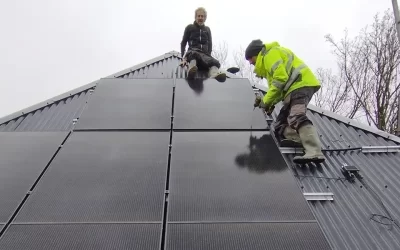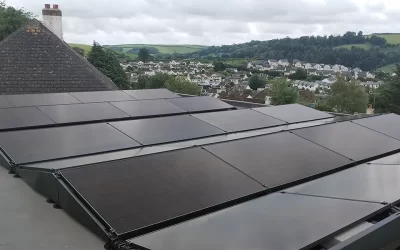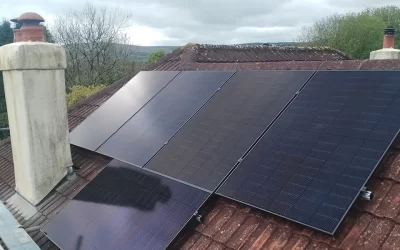Solar Panels for Homes in Devon
Free advice and guidence on residential solar panel options from your regional expert solar installers.
Solar panels for your home – is it worth it?
Undoubtedly it is.
Electricity prices are going up and as the planets’ resources are dwindling, we need to rethink how we create energy.
Solar Panels for your house will reduce energy bills, increase your home’s value and encourage a sustainable future for the next generations.
We are experts in harvesting renewable energy from the sun. With 25 years’ experience installing solar panels for homes we are helping Devon residents reduce reliance on external energy sources, protecting you from steeply rising energy costs and those inevitable power outages!
Producing your own solar power is clean and sustainable, so solar panels for homes reduce your carbon footprint and make a significant, personal contribution to slowing climate change.
All of our solar panel systems require minimal maintenance and have long lifespans, typically 25-30 years. We are proud to be the only installer in Devon offering fully-recyclable solar panels, so you can rest assured you are not leaving waste for future generations.
In many areas you can sell excess power generated by your solar panels back to the grid, earning credits or money on your utility bills.
And homes with solar panels often have higher market values and sell more quickly compared to those without them.
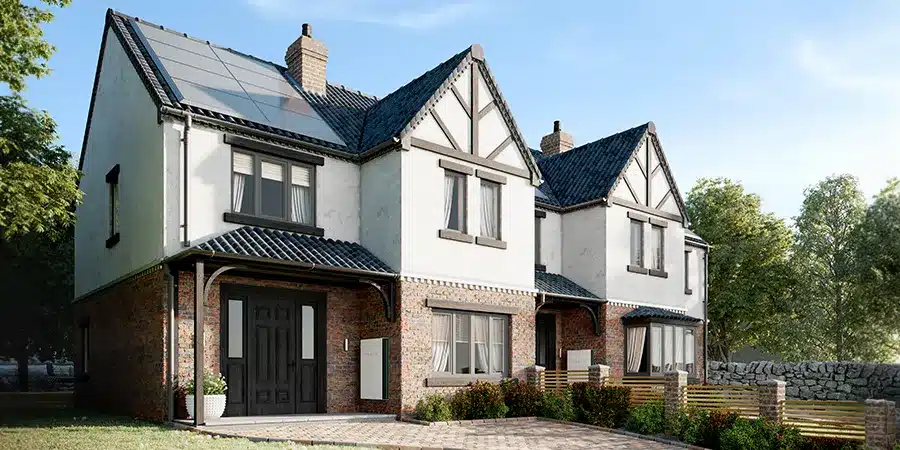
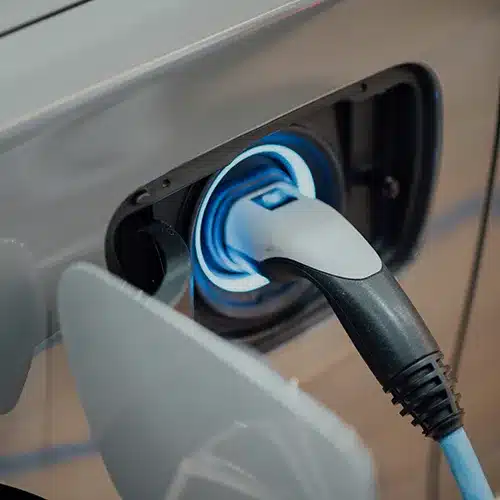

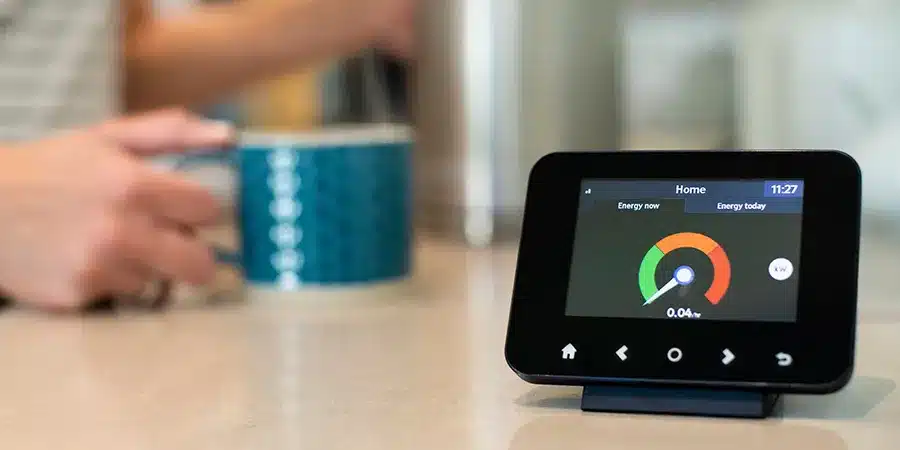
“The installation team were excellent and all communications with the management and admin staff was polite and helpful.”
Compare residential solar panels
We use solar panels designed for optimal performance and longevity; from manufacturers we trust. We always take into consideration the best equipment with the longest lifespan, for both optimal performance and in consideration of the planet’s precious resources.
Below is a table showing our preferred and most popular solar panels. Book a call with us so we can discuss with you which home solar panels are best for your property.
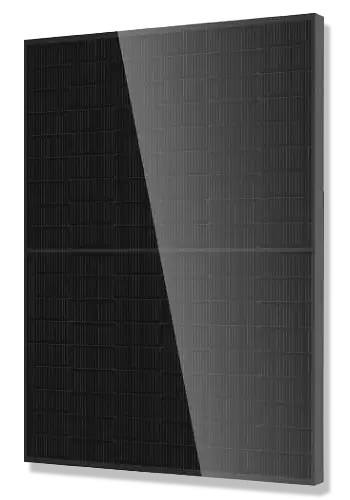
DMEGC
Standard Option (domestic)
panels
N-Type 450w
product warranty
25 years
Performance warranty
30 years
Green Credentials
good traceability
Manufactured
made in China
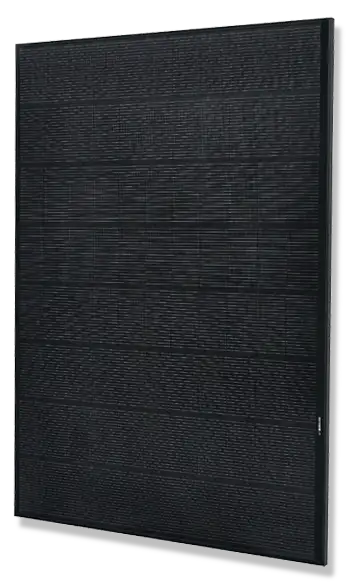
Aiko
Premium Option (domestic)
panels
Neostar 2S+ 460w
product warranty
25 years
Performance warranty
30 years
Green Credentials
very good traceability
Manufactured
made in China
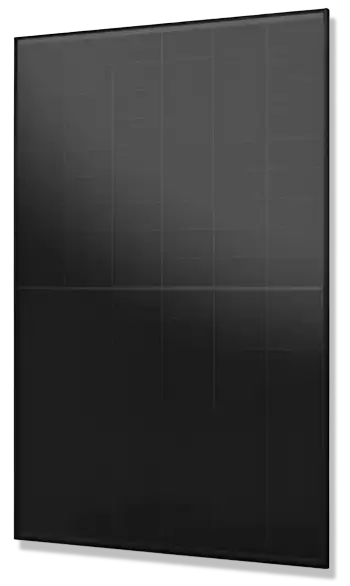
DMEGC
Commercial / Large Domestic
panels
N-Type 500w
product warranty
25 years
Performance warranty
30 years
Green Credentials
good traceability
Manufactured
made in China

Solarwatt
Premium Option (domestic)
Panel Vision GM 3.0
product warranty
30 years
Performance warranty
30 years
Green Credentials
fully recyclable
Manufactured
made in Germany

REC
Premium Option (domestic)
panels
Alpha Pure-RX
product warranty
20 years
Performance warranty
25 years
Manufactured
made in Singapore
Solar panels come with two different warranties – a performance warranty and a product warranty.
A product warranty guarantees against product defects by the manufacturer and usually range from 10-30 years. Although this will cover the cost or replacement of the panel, it doesn’t cover the cost of scaffolding or fault finding.
A performance warranty guarantees how much power a solar PV panel will retain after 25 years and as a minimum is 80% and up to 90%. Check the panel datasheets for details.
When comparing panels across manufacturers and installers, check whether warranty claims refer to product or linear performance guarantees.
The Solar Stewardship Initiative: The SSI has been designed to set out a clear set of expectations on responsible environmental, social, and governance (ESG) practices and supply chain transparency.
Solarwatt: Use ethical suppliers, ban forced labor, monitor direct suppliers, and focus on production in Germany with European standards.
REC Group: Publishes a Modern Slavery Act Statement and emphasises an ethical supply chain with careful vetting of upstream suppliers and regular audits.
Case studies for home solar
Love Barn
Location Dartington Install Date Feb 2024Summary A high consumption rented property required a solution to offset high summer usage. We designed a fully optimised system utilising multiple roof faces, providing backup functionality and battery storage. Installation 21...
Marian Rudd
Location Totnes Install Date Apr 2024Summary A passivhaus in the centre of Totnes needing solar to offset electricity usage. We designed a flat roof system combined with battery storage an EV charger and a hot water diverter. The system was also fully optimised and...
Mark Carter
Location South Brent Install Date May 2024Summary A family house near Dartmoor prone to power cuts, probably mainly due to the over ground power cables. The roof of the house and the shed provided ample space for solar panels and battery storage as well as electric...
FAQs about home solar panels
How do solar panels work?
Solar panels work by converting sunlight into electricity through a process called the photovoltaic effect. Essentially, sunlight hits the solar panels, which are made up of photovoltaic cells. These cells absorb the photons (light particles) from the sunlight, causing electrons to be knocked loose from their atoms. This flow of electrons creates an electric current, which can then be captured and converted into usable electricity.
Will solar panels work in cloudy or rainy weather?
Yes, solar panels can still generate electricity even in cloudy or rainy weather, although their efficiency will be reduced compared to sunny conditions. While direct sunlight produces the most electricity, solar panels can still generate some power from diffuse sunlight that penetrates through clouds.
How much does a solar panel system cost in Devon?
The cost of a solar panel system can vary widely depending on factors such as the size of the system, quality of components, installation costs, and location. On average, residential solar panel systems can cost anywhere from £7,000 to £30,000 or more.
Are there any incentives or rebates available for installing solar panels?
Yes, many governments offer incentives and rebates to encourage the adoption of solar energy. These can include federal tax credits, state or local rebates, and renewable energy certificates (RECs). Additionally, some utility companies offer incentives or net metering programs.
How long do solar panels last?
Solar panels are typically warrantied to last 25 years or more, but in reality, they can last much longer with proper maintenance. Most panels degrade over time, losing efficiency gradually over the years.
What happens if there is excess energy generated by my home’s solar panels?
If your solar panels generate more electricity than you need, the excess energy can be fed back into the grid if your system is connected to it. Depending on your location and utility regulations, you may receive credits or compensation for this excess energy through net metering or feed-in tariffs.
Is my roof suitable for solar panels?
The suitability of your roof for solar panels depends on factors such as its orientation, tilt, shading, and structural integrity. Ideally, a south-facing roof with minimal shading and a slope that matches your latitude is best for solar panel installation. A professional solar installer can assess your roof and provide recommendations.
What maintenance is required for solar panels?
Solar panels generally require minimal maintenance. Periodic cleaning to remove dirt, dust, and debris is recommended to optimize their performance. Additionally, you may need to inspect the panels and wiring for any signs of damage or wear over time.
How long does it take to install solar panels?
The installation time for solar panels can vary depending on the size of the system, complexity of the installation, and other factors such as permitting and weather conditions. On average, residential installations typically take anywhere from a few days to a couple of weeks to complete.
Can solar panels increase the value of my home?
Yes, studies have shown that solar panels can increase the value of a home. A solar energy system is considered a desirable feature for many homebuyers due to the potential for energy savings and environmental benefits.
What is net metering and how does it work?
Net metering is a billing arrangement that allows solar panel owners to receive credit for the excess electricity they generate and feed back into the grid. Essentially, when your solar panels produce more electricity than you need, the surplus is exported to the grid, and you receive credits on your electricity bill. These credits can then be used to offset the electricity you consume from the grid when your solar panels aren’t producing enough power, such as at night or during cloudy days.
What happens if there is a power outage?
In most grid-tied solar panel systems, the solar panels will automatically shut down during a power outage to prevent backfeeding electricity into the grid, which could be dangerous for utility workers trying to repair the power lines. However, some systems may include battery backup solutions that allow you to store excess energy generated by your solar panels for use during power outages.
Do solar panels work during winter?
Yes, solar panels can still generate electricity during winter, although their output may be reduced compared to other seasons due to shorter days, lower sun angles, and potential snow cover. However, solar panels are still effective at converting sunlight into electricity even in cold temperatures.
Is there financing available for solar panel installations?
Yes, there are various solar panel financing options available for home solar panel installations, including solar loans, leases, power purchase agreements (PPA’s), and government-backed programs.
